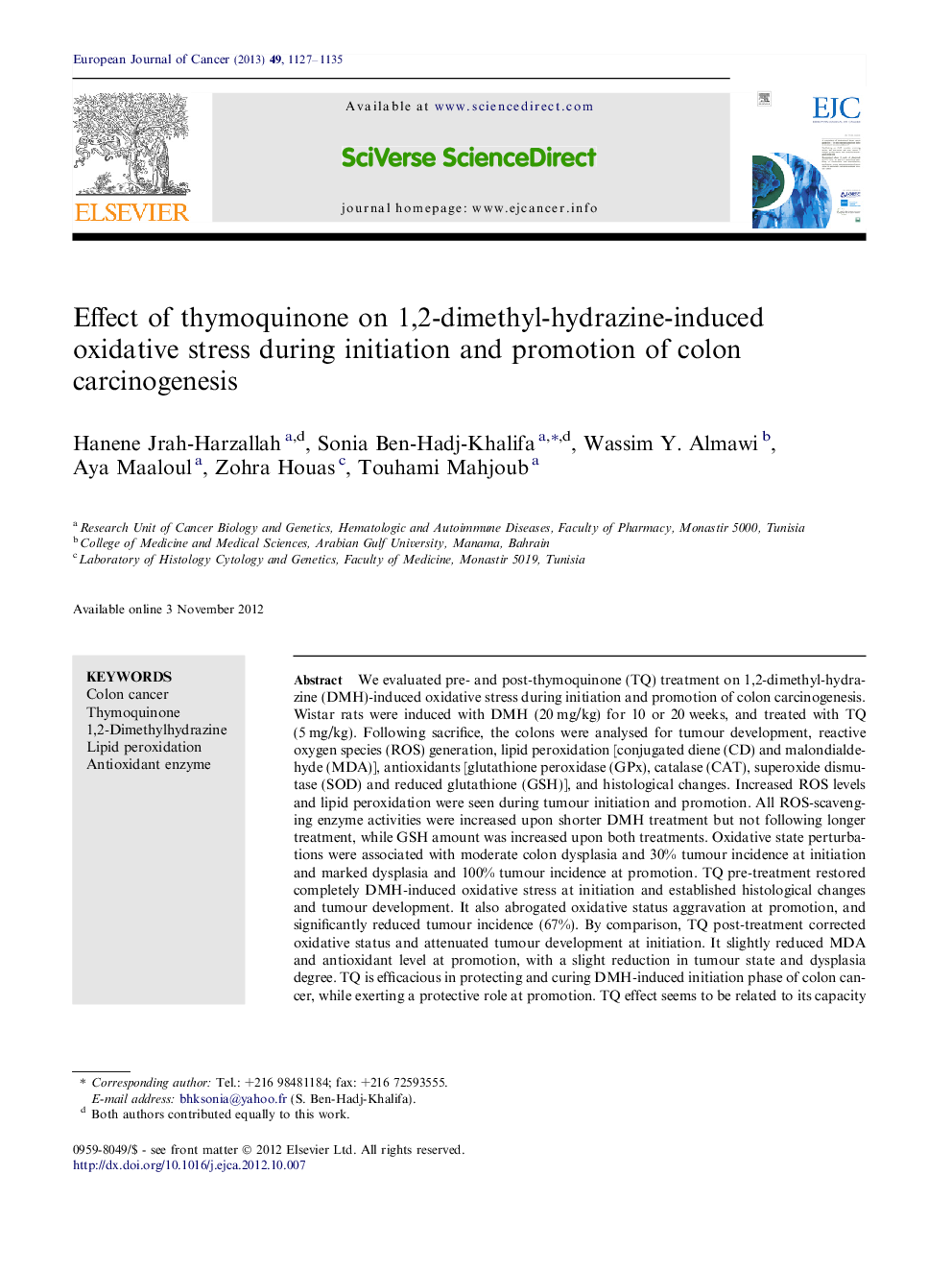| Article ID | Journal | Published Year | Pages | File Type |
|---|---|---|---|---|
| 2122923 | European Journal of Cancer | 2013 | 9 Pages |
We evaluated pre- and post-thymoquinone (TQ) treatment on 1,2-dimethyl-hydrazine (DMH)-induced oxidative stress during initiation and promotion of colon carcinogenesis. Wistar rats were induced with DMH (20 mg/kg) for 10 or 20 weeks, and treated with TQ (5 mg/kg). Following sacrifice, the colons were analysed for tumour development, reactive oxygen species (ROS) generation, lipid peroxidation [conjugated diene (CD) and malondialdehyde (MDA)], antioxidants [glutathione peroxidase (GPx), catalase (CAT), superoxide dismutase (SOD) and reduced glutathione (GSH)], and histological changes. Increased ROS levels and lipid peroxidation were seen during tumour initiation and promotion. All ROS-scavenging enzyme activities were increased upon shorter DMH treatment but not following longer treatment, while GSH amount was increased upon both treatments. Oxidative state perturbations were associated with moderate colon dysplasia and 30% tumour incidence at initiation and marked dysplasia and 100% tumour incidence at promotion. TQ pre-treatment restored completely DMH-induced oxidative stress at initiation and established histological changes and tumour development. It also abrogated oxidative status aggravation at promotion, and significantly reduced tumour incidence (67%). By comparison, TQ post-treatment corrected oxidative status and attenuated tumour development at initiation. It slightly reduced MDA and antioxidant level at promotion, with a slight reduction in tumour state and dysplasia degree. TQ is efficacious in protecting and curing DMH-induced initiation phase of colon cancer, while exerting a protective role at promotion. TQ effect seems to be related to its capacity in preventing DMH-induced oxidative stress. These in vivo results support the notion that TQ may be of value as a chemo-preventive alternative in colorectal cancer patients.
